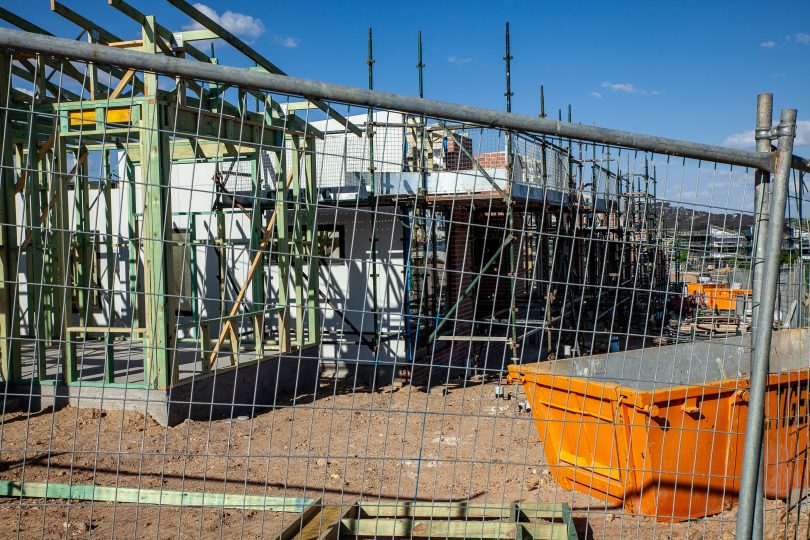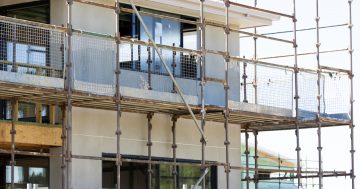
Construction in the ACT is declining, which has been compounded by COVID-19 restrictions. Photo: File.
Relief from lease variation charges and accelerating the phasing out of stamp duty have been urged to avert the ACT construction industry – particularly the apartment sector – falling off a cliff during the next 18 months.
The COVID-19 shutdown has exacerbated the decline in dwelling starts in the ACT and a new report from the Housing Industry Association (HIA) predicts a 50 per cent fall by the end of June next year.
The HIA now expects housing starts in the ACT to be down by 28.4 per cent this financial year and to decline by a further 29.4 per cent in 2020-2021.
While detached houses hold up relatively well, the apartment sector is in freefall, with the number of new dwellings expected to plunge from 4662 in 2018-2019 to 3069 this financial year, and to just 1871 in 2020-2021.
Overall, the HIA says dwelling starts could practically halve from 6007 in 2018-2019 to 3033 in 2020-2021.
HIA regional executive director Greg Weller said this scenario would have a very significant impact on jobs and small businesses. Nationally, the HIA fears for half a million jobs in the housing industry as a result of the slowdown.
Mr Weller said that in the ACT the loss of international students and overseas migration due to COVID-19 has played a big role in the deterioration of demand.
“The ACT entered this shock in a strong position, with economic and population growth driving demand for housing,” he said. “The loss of foreign students, tourists and migrants is a major hit to the ACT, even if the stable public employment base protects the broader economy somewhat.

The ACT’s new housing forecast. Image: Supplied.
“The ACT was heavily exposed in that market and that’s what is driving a lot of the high-density living as well.”
Mr Weller said the government could provide a carrot to the industry to keep projects flowing by waiving the lease variation charge for already approved developments that got underway within a certain time period of, for example, six months.
“We think giving up, for the short-term, the lease variation charge is an opportunity to get some projects off the ground,” he said.
Mr Weller also said there is more that can be done in the low-density, multi-residential area to make it easier, less time consuming and less costly to build in the suburbs.
He is heartened to hear ACT Chief Minister Andrew Barr talking about streamlining the planning system because there is too much red tape holding back smaller, simpler developments.
It’s not just new dwellings that are declining, but also renovations and alterations.
The HIA says $19.5 million worth of alterations and additions work was approved in the ACT during the March 2020 quarter, an 18.8 per cent decline from the previous quarter.
During the December 2019 quarter, the value of renovations activity fell by 4.4 per cent to be 3 per cent lower than the same quarter last year.
The amount spent on renovations in the ACT during 2019-2020 is expected to be 3 per cent weaker than the previous year, and decline by a further 5 per cent in 2020-2021.





















